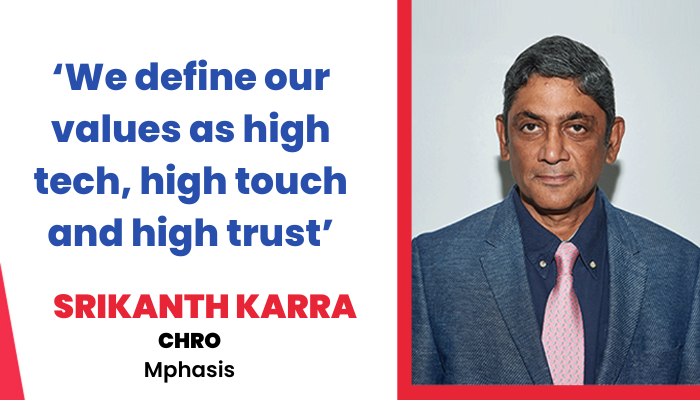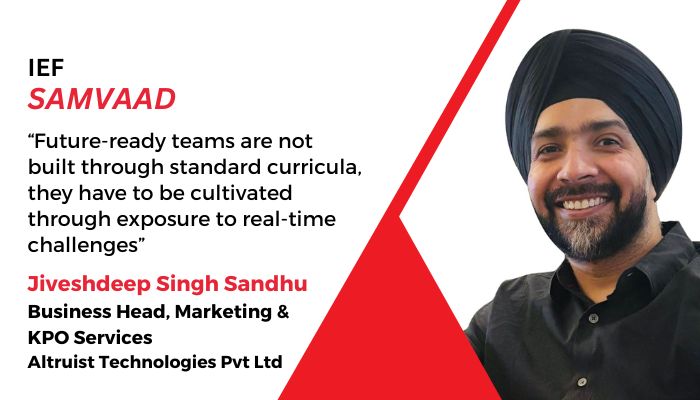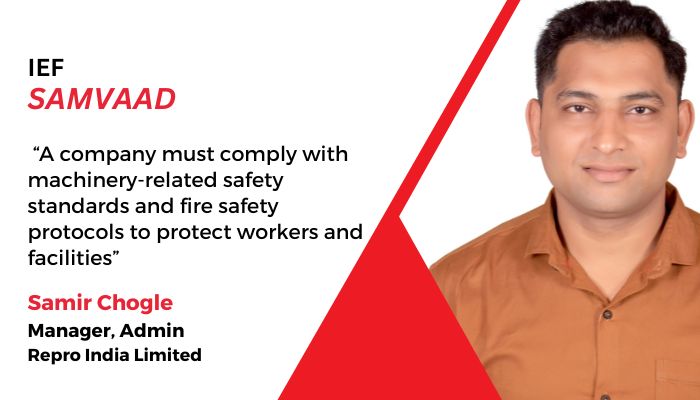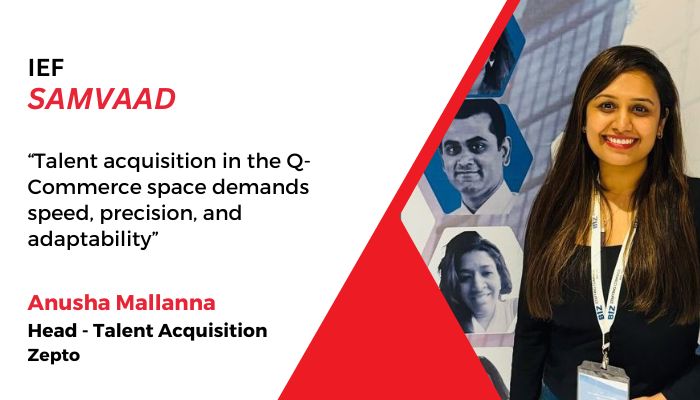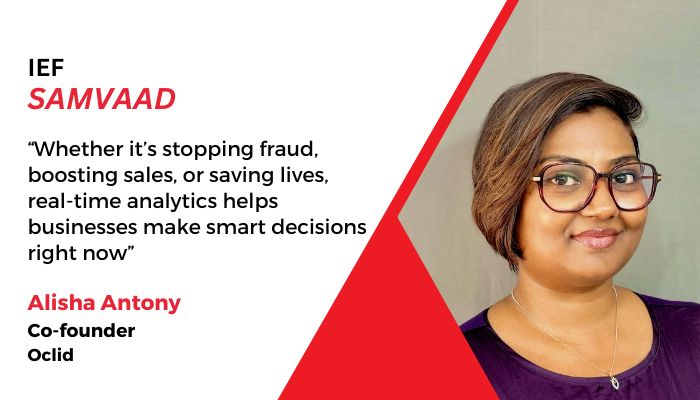Srikanth Karra, CHRO, Mphasis, talks to India Employer Forum about reaping the benefits of a great company culture, developing a continuous talent pipeline framework and much more.
Q. Tell us a little about your work journey
I have close to three decades of experience in the industry. I did my masters in personal management and industry relations with the Tata Institute of Social Sciences, post which I started my career with ITC. After close to a ten-year stint with ITC, I joined the Silicon Valley based start-up called Aztec Software and later went on to work for GE Capital, HP, and Syntel. Then, after a short entrepreneurial stint, I joined Mphasis and have been here for the last five years.
Q. There are many factors that drive a company’s culture; what do you think should be the focus points while gauging and building the culture of a company? Are there any important aspects that you think are frequently overlooked?
Traditionally, culture is something built over some time in a company. It is a bit intangible, but founders develop some nuanced beliefs and behaviours unique to their company. Understanding these value systems or ideas and practising them with rigour and discipline enforces and encourages a company’s culture. I believe that there are two ways one can try and imbibe the culture into the employees. The first is by building stories around the culture, and the second is by imposing the culture on how you bring to life the real stories of real heroes or real people who demonstrate those values or behaviours and tell the stories around.
Top management, CEOs, or CXOs, often tend to reinforce their own beliefs and values in the organization. And when doing so, what companies miss out on is getting to understand the nuanced behaviours that are already existing deep inside the company’s DNA and the need to bring them to the fore. These values can then be moulded and shaped to the management’s beliefs. In my view, this is one of the big mistakes many companies or many people make.
Q. How important is meeting the employee’s personal development goals? What capacities should a company build to meet them?
When you do an employee goal setting, you must personalise, and hyper personalise those goals. What I mean by this is that we need to look at the larger picture – what are the company goals, and how does this match your personal goals. Suppose there is any dissonance trying to align it with the company goals, it is crucial to relook at them and understand what the employee goals are. To answer the second part, how do you build your capability or capacity? In most HR designs, whatever you do, whether it is your performance management goal setting or personal development goals, the most crucial thing HR must keep in mind is how they are translating the business goals to personal goals. It is done most often the other way around. So, it is not first measuring the individual goals but getting into the business goals and aligning them to the personal objectives. How do you build a just-in-time hyper-personalised platform if there is any gap?
Q. How do you keep your employees connected and engaged with the company?
We do that in several ways.
Post Covid, many innovations have happened in terms of technology platforms, engagement programs, wellness programs, awards, and recognition etc. Recently, we announced Tesla for the top three performers in sales and this, which created a lot of excitement in the system. We have ace awards which are celebrated across the organisation, and we also celebrate our loyal long-standing employees. At Mphasis, if employees have been with us for even if three to five years, they are recognized regularly. More importantly, we blend with our values, keeping in mind that we area technology company: we are a high tech, high touch and high trust company.
Post-Covid, many innovations have happened in technology platforms, engagement programs, wellness programs, awards, recognition, etc. For example, we recently announced Tesla for the top three performers in our Sales function, which created a lot of excitement in the organization. In addition, we have ACE awards celebrated across the organisation, and we also celebrate our loyal, long-standing employees, who we call our ” Pillars.” At Mphasis, those employees who have been with us for three to five years, and more are recognized regularly. Celebrating our employees is key to the initiatives we execute within the organization which enables us to showcase our values through our people. Our values are a combination of what we offer our employees as a tech organisation: Hi-Tech, Hi-Touch, Hi-Trust.
We also encourage our employee to tell their story on various platforms and through different formats.
Q. One problem companies face is having a quality pipeline for talented prospective employees; how do you tackle this problem in your organisation?
We do believe in promoting from within as much as possible. We try not to depend too much on lateral recruitment; this is what we call the employee pyramid. We quickly identified the meritorious employees; I talked about hyper-personalisation of the HR systems earlier. We have a Talent Next platform, which is the Netflix of learning. So, we do not do classroom training or generalised training and development sessions. We tailor the needs to the individual requirements and continuously monitor what we call the learning quotient of the individual. So, as a person is acquiring more and more on this platform, we keep recognising them in terms of money.
We incentivise many certifications, and a critical mass of certificates clearly says this person is ready to be promoted to the next level. So, it is a scientific process to keep skilling and reskilling an individual, identifying their learning potential, and quickly moving them into the next role so that we don’t lose them to external competition. Given the demand, we need to have a certain percentage of lateral recruitment, which must happen because, in this current age, attrition and movement of people are much more volatile than two years back. So, we depend on many laterals, but again fundamentally getting them into key technology areas and engaging them in productive work through the Talent Next platform.
The other platform that we have is what we call Geek Cloud. So, when people are free, we use them through our Geek Cloud platform to engage them in various projects and earn money. So, if a person has nothing much to do on a Saturday or Sunday, we can put one hour of work on this platform. If the work that the person has been offered is accepted, they get a monetary incentive. Engagement programs need to be productive and, at the same time, promotes and upskill the employees. Such programmes truly become a win-win situation for the company and the employee.
Q. What inclusions would you like to see in the 4 labour codes currently being worked on by the Government?
The unorganised labour sector has been brought to the fore, which has been discussed for years and years together. The only inclusion would be to get clarity on the social security aspect. Though they have been brought into the ambit, the unorganised sector and even the gig workers have been recognised as the workforce. If we get a clearer picture on this aspect, it will be much more holistic in its implementation. Otherwise, it is a very forward-thinking, forward-looking labour code that the Government has come up with. I wish it all the success in making the country and the economy a much more robust one.
Watch the full interview: In conversation with Srikanth Karra, CHRO, Mphasis
About Srikanth Karra
Srikanth Karra is an industry veteran and seasoned human resources (HR) officer with close to 30 years’ experience in business-focused, innovative, HR systems and processes. He has been instrumental in institutionalising global benchmarks for large enterprises as well as startups. Over the years, Srikanth has strategized, spearheaded, and seamlessly executed numerous people initiatives. His functional experience spans resource strategy, manufacturing operations, industrial relations, HR technology implementation, and process excellence in multiple industries including manufacturing, information technology (IT/ITES), and telecom.
Srikanth started his career with ITC, where he worked for about 10 years across various geographies before moving to a Silicon Valley startup, Aztec Software, and then to General Electric Capital International Services (GECIS) as their HR Head. He was also the Global HR Head at Syntel Inc., and then the country Head HR for Hewlett-Packard (HP) India. His entrepreneurial spirit led him to invest and work with technology startups, which he passionately continues. He then took on the role of HR Director at Airtel and later as Head of HR Strategy and Culture for Syntel.
Srikanth holds a master’s degree in personnel management and industrial relations from Tata Institute of Social Sciences (TISS) and a bachelor’s degree in general law from Mumbai University. He has also attended various executive programs with Asian Institute of Management (AIM) Manila, Wharton, GE Crotonville, and Harvard.

